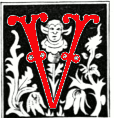
ictorian globetrotters were of different shapes and types, be they men or women of letters, scientists (such as geologists and plant collectors), artists, photographers, diplomats, military officers or soldiers, merchants or traders, medics, missionaries, or simply leisure tourists. Diverse as they were, they crossed national boundaries and travelled to far-off places worldwide. Victorian writings that recorded their footprints and grasp of the world outside their homeland also break the geographical and cultural barriers. Among the best known are Charles Dickens's American Notes and Pictures of Italy, John Ruskin's The Stones of Venice, Charles Darwin's Voyages, R.L Stevenson's In the South Seas, Harriet Martineau's Retrospect of Western Travel, Isabella L. Bird's Unbeaten Tracks in Japan, just to name a few. Publishers such as John Murray, renowned for travel books, and periodicals such as Punch produced a prodigious amount of works related to other countries. Significantly, the many fictional narratives, personal diaries, travelogues, and journalistic publications have been inscribed with rich biographical and historical contexts, vigorous imaginativeness, and opportunities for cultural exchanges past and present. Readers are lured to travel to the “Victorian” world and to consider the numerous encounters with “abroad.” Meanwhile, Victorian Literature’s rich spatial and temporal distinctions also allow for extensions and afterlives in forms such as translation, adaptation and recreation in other countries or foreign languages. Victorian scholarship has thus attracted new critical focus in recent years. This special issue seeks contributions relating to the history and depictions of Victorian authors regarding travel, appraisals and revisiting from global perspectives, including how they are being received or taught outside the UK.
The Special Issue No. 59 of Sun Yat-Sen Journal of Humanities, to be published July 2025 (Submission deadline 28 February 2025), invites scholarly essays to explore Victorians and Victorian Literature Abroad. Topics may include but are not limited to:
- Victorian Literary Writers who Travelled Abroad and their Writings
- Victorians Abroad and their Writings (Travelogues, Tales, Correspondences, Diaries, Memoirs)
- Travels and Travellers in the Victorian Novel
- Travel Writings and Illustrations in Victorian Periodicals
- Victorian Women’s Travel Writings
- Scientists, Medics, Missionaries, their Works, Reflections, and Impacts
- Reception of Victorian Literature by Other Countries or Cultures Then/ After
- Imperial Gaze, Cultural Interventions, Conflicts and Assimilations
- Time Traveller, Armchair Traveller, Imaginative Traveller
- Literary or Commercial Travel Writings
- Teaching Victorian Literature Outside British Isles
- Translations, Adaptations, Recreations in Other Countries or Foreign Languages.
- New Critical or Theoretical Focus, Pedagogical Approaches, Virtual Reality
Manuscripts should be between 7500—10,000 words and follow The MLA Manual of Style. Please submit one electronic copy, a 500-word abstract (as an attachment in Word), a short biography and contact information to sysjoh@mail.nsysu.edu.tw and cc to the guest editors:
- Professor Shu-Fang Lai, Department of Foreign Languages and Literature, National Sun Yat-Sen University, Taiwan; sflai@mail.nsysu.edu.tw
- Professor Fumie Tamai, Faculty of Global Communications, Doshisha University, Japan; ftamai@mail.doshisha.ac.jp
For more details about the journal, see https://rpb17.nsysu.edu.tw/app/index.php
Created 25 July 2024